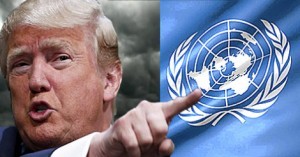On Friday, The Washington Post published an op-ed by U.S. Ambassador to the United Nations Nikki Haley in which she condemned the way in which the Human Rights Council (HRC) operates.
Haley wrote that Venezuela and Cuba having seats on the Human Rights Council is an affront to the international body, as both nations are rampant abusers of human rights:
Venezuela is a member of the council despite the systematic destruction of civil society by the government of Nicolás Maduro through arbitrary detention, torture and blatant violations of freedom of the press and expression. …
Cuba’s government strictly controls the media and severely restricts the Cuban people’s access to the Internet. Thousands are arbitrarily detained each year, with some political prisoners serving long sentences. …
Haley also pointed out that “no special meeting of the Human Rights Council was called” when Russia invaded Crimea, “and the abuses continue to mount.”
A subcommittee of the U.S. Senate met last month to “consider whether the United States should remain a part of the council.” For the U.S. to remain, substantial changes must be made, according to Haley, including “competitive voting to keep the worst human rights abusers from obtaining seats,” as well as an end to the “practice of wrongly singling out Israel for criticism.”
When the council passes more than 70 resolutions against Israel, a country with a strong human rights record, and just seven resolutions against Iran, a country with an abysmal human rights record, you know something is seriously wrong.
On Monday, Reuters reported that the Trump administration will likely make it known on Tuesday whether the United States plans to remain part of the Human Rights Council. The outlet added that during George W. Bush’s presidency, the U.S. “boycotted the body for three years” before rejoining under President Obama.
Critics say that leaving the Council will make it more difficult for the body to address anti-Israel bias:
Eight groups, including Freedom House and the Jacob Blaustein Institute, wrote to Haley in May saying a withdrawal would be counterproductive since it could lead to the Council “unfairly targeting Israel to an even greater degree.”
Targeting Israel is practically sport for the UNHRC. As The Times of Israel reports: “Agenda Item Seven,” which is the singular “state-specific” agenda item, “is a permanent fixture requiring the council to discuss three times each year any alleged abuses of human rights committed by Israel against Palestinians.”
Reuters correctly notes that “Washington, Israel’s main ally, often casts the only vote against the Arab-led resolutions.” The United States acts as the barrier protecting Israel from its numerous enemies within the United Nations.
Leaving the Human Rights Council if it refuses to implement necessary changes would be a strong move on the part of the Trump administration. On the other hand, there is the possibility that exiting the Council would leave it open to the most vile players.
Some of the worst human rights violators on the planet are currently serving as members on the UNHRC, including Saudi Arabia, Qatar, Venezuela, Cuba, Philippines, Indonesia, and China.
Ask me anything
Explore related questions





